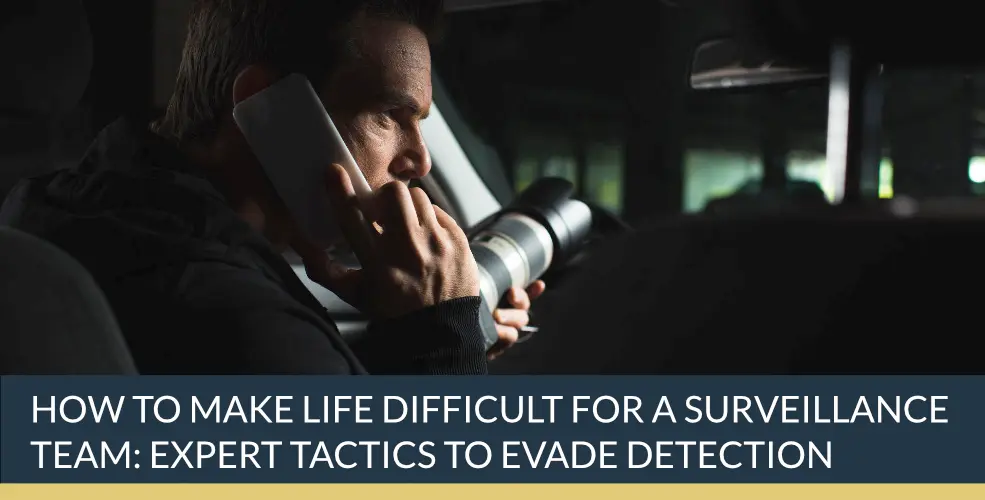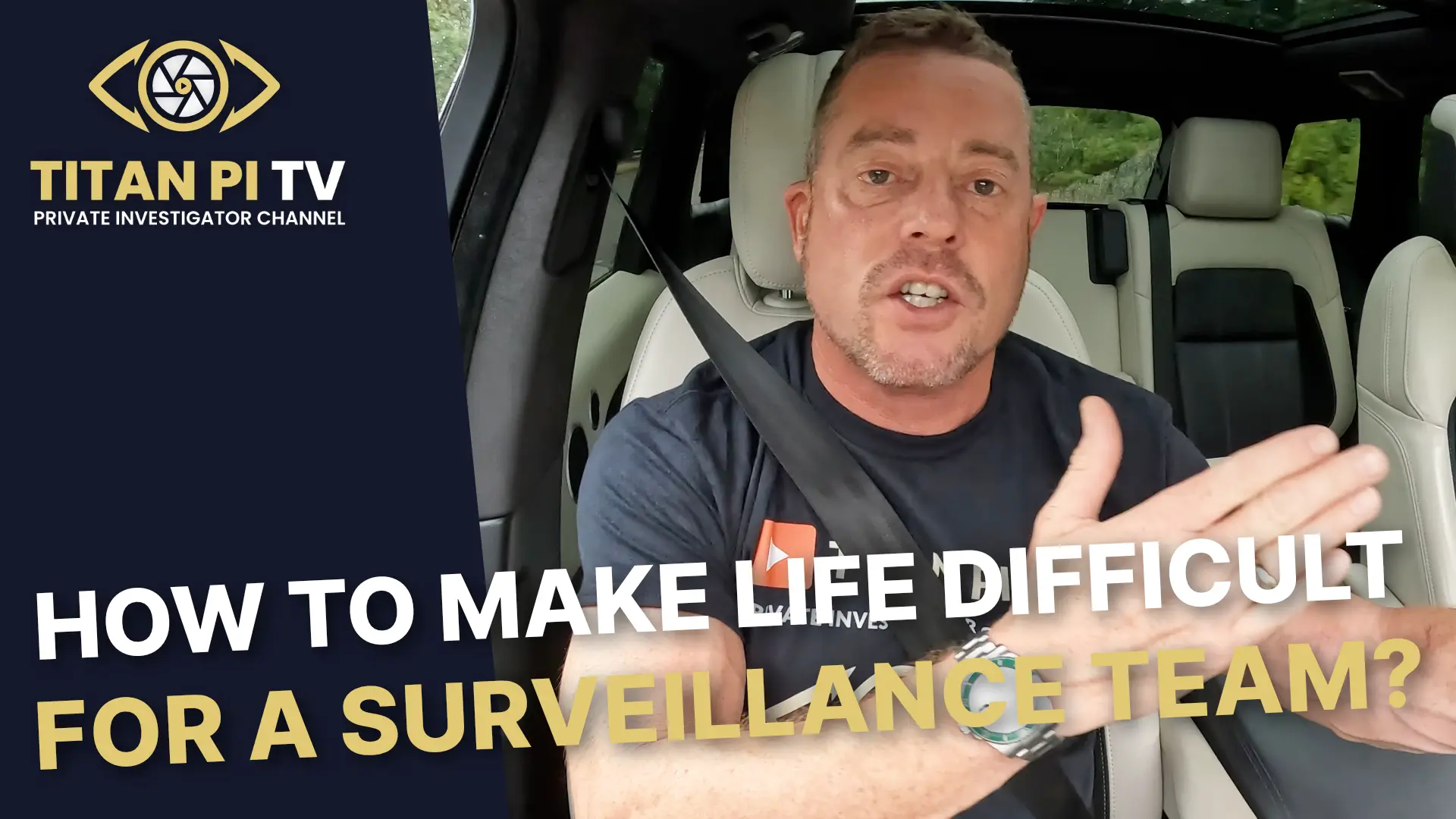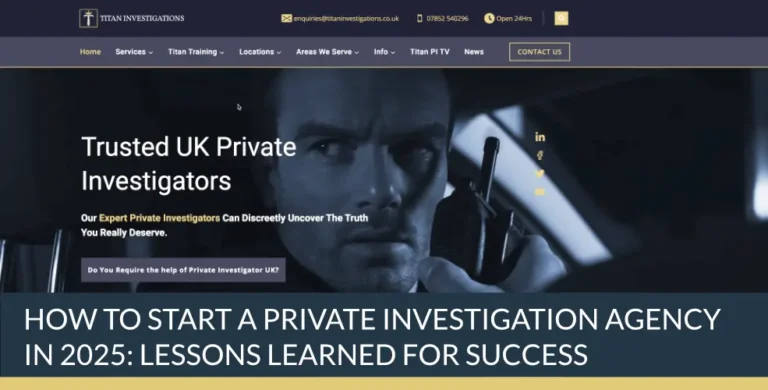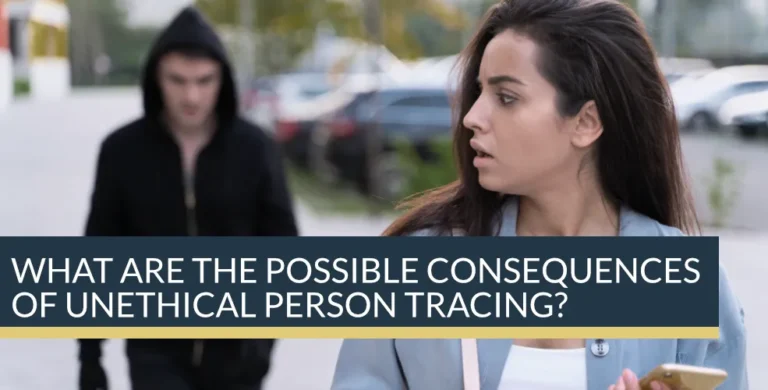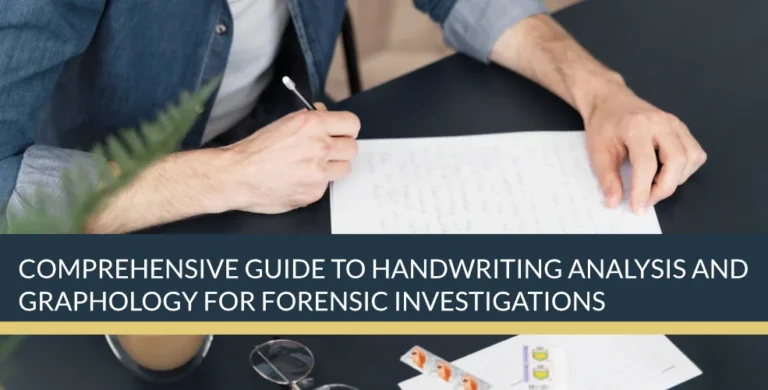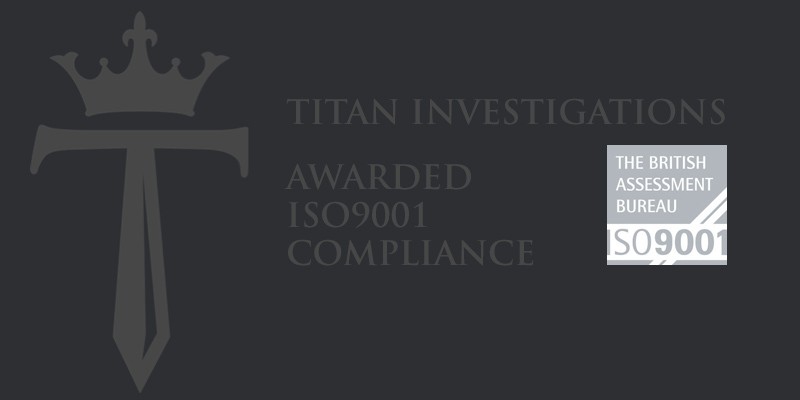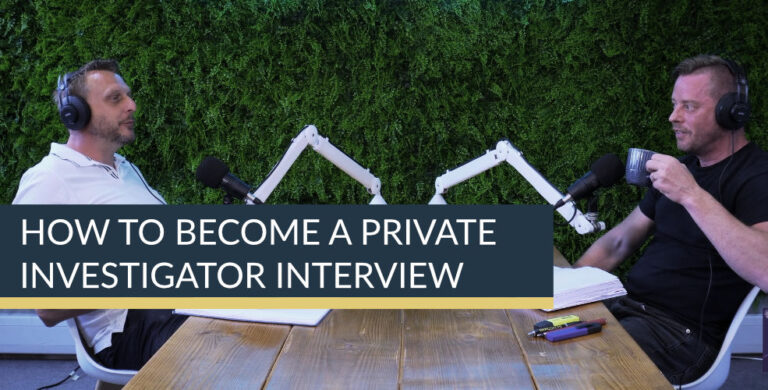How to Make Life Difficult for a Surveillance Team: Expert Tactics to Evade Detection
Have you ever had the unnerving feeling that you might be under surveillance?
Perhaps a car seems to stay behind you a little too long, or you’ve noticed the same face turn up in surprisingly coincidental places. The idea alone can be unsettling, but knowledge is power. Understanding how surveillance operations work – and where their weaknesses lie – can give you back some control.
This feature from Titan Private Investigation Ltd dives deep into seven expert tactics that make life very difficult for a surveillance team. While such methods won’t turn you into James Bond overnight, they could expose – or at least inconvenience – professional watchers who would much rather remain in the shadows.
At Titan, we provide insights into the covert world of private investigation, equipping you with the knowledge of how surveillance is conducted and, crucially, how to disrupt it. Today, we’re looking at practical ways individuals can make things challenging for surveillance operatives.
Understanding Surveillance Tactics and Their Weaknesses
Surveillance is a skilled art. Private investigators employ tried-and-tested methods honed over decades. They utilise vehicles, foot observation, cameras, and recording devices to monitor subjects discreetly.
However, covert surveillance isn’t infallible. It relies on planning, teamwork, environmental knowledge, and – perhaps most importantly – the subject behaving in a predictable fashion. That dependency is its greatest weakness. Simply behaving slightly differently can throw a surveillance operative’s plan into disarray.
Surveillance teams must balance two competing demands:
- Staying close enough to maintain visual contact.
- Remaining covert enough not to arouse suspicion.
When subjects break away from normal routines or use environments creatively, that balance quickly becomes strained. Tight traffic, multiple exits, or suspiciously deliberate behaviour can reveal their presence.
The Role of a Private Investigator in Surveillance
Professional surveillance operatives aren’t sinister voyeurs out of spy thrillers. They are specialists hired to gather intelligence – often for legitimate reasons. Typical assignments might involve:
- Corporate fraud or employee misconduct
- Infidelity investigations
- Insurance claims verification
- Background checks and due diligence
Surveillance is usually painstaking, requiring long hours of observation. Operatives often operate as part of a team: some following closely, others positioned ahead, ready to pick up the subject. It can be seamless when well executed – but the job is full of pitfalls.
Common Challenges for Surveillance Teams
Even the best-trained investigators face recurring problems:
- Traffic and unpredictable driving patterns – congestion, diversions, or sudden U-turns can cause operatives to lose visibility.
- Environmental obstacles – narrow streets, cul-de-sacs, large crowds, or inclement weather can all compromise surveillance.
- Behavioural counter-surveillance – subjects who actively try to flush out a team create stress and force mistakes.
- Technology reliance – while trackers exist, they cannot legally or ethically be applied in every situation, so visual follow remains key.
Ultimately, a surveillance team’s success depends on remaining invisible. Anything that forces them to reveal themselves stacks the odds against them.
Seven Expert Tactics to Disrupt Surveillance Operations
Now, let’s take a closer look at seven practical methods that can turn the tables on those watching you.
1. Employing Unusual Routes
Surveillance thrives on routine. If you always drive the same way to work, stop at the same coffee shop, or walk your dog along the same path, you make their job far too easy. By deliberately deviating from expected routes – for example, taking quiet back streets parallel to main roads – you immediately increase the challenge.
Unfamiliar routes strip the team of planning advantages. They must decide quickly whether to follow you down less predictable paths, at risk of losing cover or visual contact. It’s a high-pressure situation where mistakes are made.
2. Strategic Roundabout Manoeuvres
Roundabouts are natural pressure points for surveillance. Most drivers use them routinely, exiting at their first or designated exit. But what happens if you go around once… twice… or three times?
This unconventional move looks suspicious in itself, and the surveillance team has limited options. Follow you round and they risk you spotting them in your mirrors. Break away too soon and they may lose you entirely.
Roundabouts create visible reflections, test vehicle positioning, and can draw out a tail without confrontation.
3. Leveraging Traffic Lights
Traffic lights are another underused counter-surveillance tool. Safely proceeding through an amber light while observing those behind you tells a story. Will the vehicle or pedestrian following you take the risk as well, or will they hang back unnaturally?
If they repeatedly make the same decisions you do at lights and junctions, patterns start to emerge. Operatives must work hard to disguise this, but in reality, it is difficult to mask over long periods.
4. Motorway Tactics for Identification
Long stretches of motorway expose following vehicles. Tailgaters risk being noticed just as much as cars lingering unnaturally behind.
A useful strategy is maintaining a consistent, slightly reduced speed – hovering around the legal limits applied to heavy goods vehicles. Cars that don’t naturally pass you during long stretches become conspicuous. On a motorway, most drivers overtake when safe; the ones who don’t deserve closer scrutiny.
5. Utilising Motorway Services Strategically
Motorway service stations – especially those with unusual exit patterns – are goldmines for counter-surveillance. Exiting, pausing briefly, and then using an alternative exit route confuses those trailing you. Should they follow you into the car park, they risk visibility. If they don’t, they could lose sight completely.
Surveillance operatives dread such manoeuvres, as services provide multiple opportunities for a subject to break contact.
6. Navigating Car Parks with Multiple Exits
Whether in a city centre multi-storey or large retail complex, car parks offer subjects more control than streets. Their many exits set traps for tailing vehicles. Simply switching exits, lingering between levels, or entering on foot and leaving through another doorway can force surveillance gaps.
Operatives must position themselves at multiple angles to avoid losing contact – which risks exposure. It is an environment where cover can collapse very quickly.
7. The Layby Stop and Reversal
One of the simplest but most effective countermeasures is stopping in a layby. Done subtly, it forces any trailing car to make a choice:
- Stop behind you (revealing themselves immediately), or
- Drive past (only to potentially circle back, confirming their interest).
Even better, if you reverse out after a few seconds, you may catch a second surveillance vehicle trying to maintain coverage. That double confirmation often signals the presence of a coordinated team.
The Psychology of Counter-Surveillance
These tactics don’t just physically disrupt surveillance – they apply psychological pressure. Operatives pride themselves on remaining unnoticed. Once they suspect a subject is “aware” or deliberately evading, anxiety rises. Mistakes follow. Increased radio chatter, hurried decisions, reckless vehicle placement – all outcomes of a rattled team.
Just two or three deliberate counter-surveillance manoeuvres can cause enough uncertainty that a team decides the game is not worth playing – abandoning the effort for the day.
Ethical Considerations and Caution
It is worth underlining that surveillance is not always malicious. In many cases, legitimate reasons exist for observation – from corporate misconduct to legal evidence gathering. Actively evading surveillance may sometimes be ill-advised legally or personally.
Our advice here is educational. Understanding these tactics offers awareness and reassurance. If you believe you are under surveillance for unlawful reasons, the appropriate step is to report your concerns to the authorities or request professional assistance from a licensed private investigation agency.
The Titan Private Investigation Approach
At Titan PI, we don’t only conduct discreet surveillance – we also teach counter-surveillance techniques within corporate and personal safety training. Empowering individuals to stay situationally aware forms part of our wider ethos: protecting privacy, safeguarding reputations, and uncovering truth.
Our operatives spend years perfecting the art of blending in. But we are the first to admit: surveillance is never unbeatable. Subjects who think ahead, who dare to act unpredictably, have the real power.
Conclusion: Awareness is Your Greatest Weapon
These seven methods may appear simple, but in combination they erode a surveillance team’s confidence rapidly. Employ unusual routes, test with roundabouts, use traffic lights strategically, and stay alert on motorways. Car parks and laybys give you space to challenge a team’s cover.
Above all, recognise the signs. If you strongly feel you are being observed, maintaining awareness and composure is vital. Even the suspicion that a subject has noticed them is enough to derail a surveillance team’s mission.
At Titan Private Investigation, we believe information is empowerment. Knowing how surveillance works – and how to disrupt it – gives you the confidence to take back control of your personal freedom.
About Titan Private Investigation Ltd
Titan Private Investigation Ltd is a leading provider of corporate and private investigation services in the UK. Based in Derby, the company serves clients nationwide, offering a full range of investigative solutions including surveillance, fraud investigation, digital forensics, and more. With a reputation for professionalism, discretion, and results, Titan is the trusted partner of choice for businesses seeking to protect their interests and ensure compliance.
London Lie Detector Test – Call the Titan Investigations London Office 020 39046622
Birmingham Lie Detector Tests– Call the Titan Investigations Birmingham Office 0121 7162442
Cambridge Lie Detector Tests – Call the Titan Investigations Cambridge Office 01223 662022
Derby Lie Detector Tests – Call the Titan Investigations Derby (Head Office) 01332 504256
Leeds Lie Detector Tests – Call the Titan Investigations Leeds Office 0113 4574066
Leicester Lie Detector Tests – Call the Titan Investigations Leicester Office 0116 2436520
Nottingham Lie Detector Tests – Call the Titan Investigations Nottingham Office 0115 9646950
Manchester Lie Detector Tests – Call the Titan Investigations Manchester Office 0161 3023008
Sheffield Lie Detector Tests– Call the Titan Investigations Sheffield Office 0114 3499400
Truro Lie Detector Tests – Call the Titan Investigations Truro Office 01872 888706
Alternatively, you can contact us directly using our fully confidential contact form at enquiries@titaninvestigations.co.uk or chat directly using our Live Chat facility, and one of our Corporate Investigations team will get right back to you.

